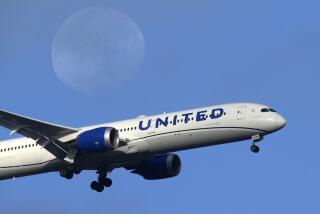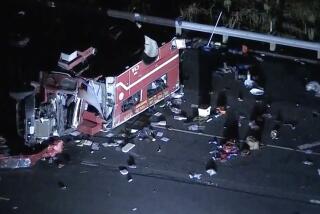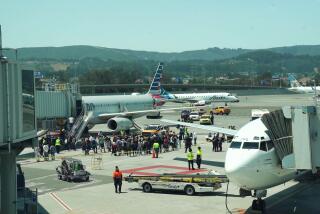SF plane crash: 10 in critical condition at S.F. General Hospital
SAN FRANICSCO-- Ten Korean-speaking passengers are in critical condition at San Francisco General Hospital after an Asiana Airlines plane crashed on a runway at San Francisco International Airport.
Eight adults and two children were admitted, and the adults ranged in age between 20 to 40. Four were men, and six were women. The hospital has had to set up tents outside the emergency room to accommodate additional patients from the crash who don’t require trauma care, said Rachael Kagan, a spokeswoman for the hospital.
“We have seen a variety of injuries you would associate with a crash or fire,” Kagan said, including burns, fractures, and internal injuries. Some patients needed to go immediately into operating rooms.
Some in critical condition have been moved to other units in the hospital, such as intensive care or surgery.
South Korean Deputy Consul General Hong Sung Wok said Asiana Airlines officials told him that one person was killed and 20 to 30 people injured in the crash.
“We are very shocked,” Hong said, speaking with a Times reporter in the arrival area of the international terminal. “We have to take care of this sad situation. We will make all efforts to take care of these families. We also express our sorrows to the victims.”
He said that airline officials told him there were 299 people aboard the plane, with that number possibly including crew members. He said he was told that most people were safe.
Angela Chung Soon Lee, a representative of the Korean American Federation USA, an association of community groups, said a friend had called her to tell her about the plane crash.
Lee, who was also at the airport, said, “We are just looking to see how we can help those here and those in the hospital.”
A law enforcement official told The Times that at least 48 people aboard the flight were treated by medical personnel.
The source, who was involved in the rescue effort, said there was no immediate word on the severity of the injuries or whether there were any fatalities.
Some passengers were taken to hospitals. Tech executive David Eun, who was on the plane, sent out a message on Twitter, saying: “Most people are totally calm and trying to let the fire and rescue do their jobs.... Posted updates to let everyone know that majority of passengers seem ok.”
A photo taken by a passenger on the flight shows people on the runway and smoke coming from the aircraft. Other photos show the tail of the plane broken off.
In a brief phone interview, a passenger who didn’t want to give his name told The Times that most passengers were unharmed. “I just want their families to know,” he said. “Most of the people seem OK, and we’re just letting the paramedics do their job.”
Federal authorities are looking into whether the Asiana Airlines jetliner carrying nearly 300 people clipped a sea wall before crashing at the airport, sources said.
Mechanical difficulties have not been rules out, but investigators are focused on whether th plane came in too low, according to sources familiar with the investigation who spoke on condition of anonymity.
Multiple sources said there was no reported trouble or declared emergency on the plane until the flight crash landed.
The last major incident at San Francisco International Airport happened in 2008, when a United Airlines Boeing 757 jet without any passengers was backing out of a gate and collided with a SkyWest plane carrying 60 passengers and crew, according to the San Francisco Chronicle. No passengers were injured.
The last major crash to occur in the United States was in 2009 when Continental Connection Flight 3407 crashed about six miles short of Buffalo Niagara International Airport. All 48 people on board were killed.
ALSO:
Plane crash: Passengers on other flights redirected from SFO
Asiana SFO crash: 1 dead, 20-30 injured, S. Korean official says
Asiana 777 crash: Traveler inside terminal saw ‘billowing smoke’
More to Read
Sign up for Essential California
The most important California stories and recommendations in your inbox every morning.
You may occasionally receive promotional content from the Los Angeles Times.










